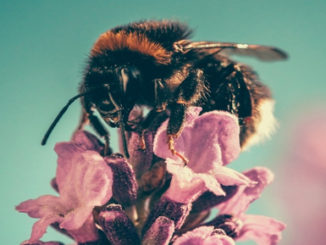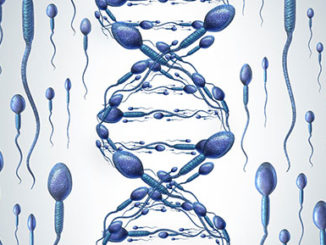Articles that explore the ways in which the environment influences gene expression and epigenetic marks, including information on pollution, toxins, and global warming.
Maintaining a healthy diet can be incredibly difficult to do, especially with the temptations of junk food, alcohol, and sweets. Often times we are in a rush to get to plans that we’ve made, or go grab a drink after work, and we forget to prioritize putting nutritious foods in our bodies. As a result, most of us follow a western diet in our everyday lives, because the foods are more readily available (and seem to taste better). This diet [more…]
Swords and stones might determine royalty in England, but scientists discovered that in honeybees, the deciding factor may be epigenetics. A recent study suggests that histone modifications, including histone methylation and histone acetylation, could determine whether bee larvae develop into workers or a queen. Interestingly, the bees’ diet was found to influence these epigenetic marks. Diet can have a significant impact in human epigenetics, and could influence a person’s disease risk and mental ability. “Think of the genome as the [more…]
Even just one night of sleep loss could lead to epigenetic changes that tweak our metabolism and regulation of gene expression, a new study suggests. Researchers at Uppsala University found that one night without sleep was linked to alteration of the human epigenome, weight gain, and the loss of lean muscle mass. Previous research has shown that skipping sleep lowers the body’s protective antioxidant levels and leads to epigenetic changes. Sleep deprivation can also impact histone modifications and impair memory. [more…]
Long-term exposure to cold temperatures could actually affect our gene expression and influence our fat cells, a recent study suggests. Research published in Nature Communications offers more evidence on how lifestyle choices and exposure to our environment can dictate the way our genes express themselves, an overarching theme of epigenetics. A group of researchers based out of Tokyo worked alongside colleagues from around the world to track changes to the epigenome following long-term exposure to cold temperatures. They discovered that [more…]
Tens of thousands of years ago, humans formed a unique bond with one particular animal, the wolf. And over time with years of interaction and intervention, these wolves transformed. They became docile and less fearful. They changed in appearance, becoming smaller with floppier ears and curled tails. They even learned how to read human facial expressions and take commands. In effect, they were no longer wolves, but an entirely new species — the dog. Dogs, like many other domestic animals, [more…]
Organic foods are rather popular in shopping baskets nowadays. After all, avoiding those pesky pesticides that are used on a vast amount of produce is surely good for our health. But what about the health of our children and their children thereafter? We already know that the life experiences of our mothers and fathers can influence the epigenetics in their children. Epigenetics may also be ‘remembered’ through the phenomena known as transgenerational inheritance; so the pesticides your great-granddad may have [more…]
Many of us are familiar with the foods that damage our bodies – they slow our metabolism, might add a few pounds, and stiffen our arteries. But what if certain food items could help or harm us in a place we may never have considered – like our DNA? A developing field called nutriepigenomics examines the connection between diet and chemical marks that can be attached to or removed from our DNA, thereby turning genes on or off. Many new [more…]
Pinpointing factors that make a person unique could shift the entire landscape of how we attend to our health – from exercise plans to custom diets and even skincare regimens. The concept of personalization has pierced the bubble of the prevailing “one size fits all” mentality, deflating the flawed notion that what works for the majority will likely work for anyone. When it comes to our bodies’ largest organ, and caring for it effectively, epigenetics may provide an answer. Our [more…]
There is strong evidence that suggests certain environmental or lifestyle factors may lead to increased risk of developing chronic diseases. These factors such as diet, behavior, stress, exposure to pollutants, and physical activity have been known to cause epigenetic changes which may be passed down from one generation to the next. It is believed that a father’s exposure to environmental factors can play a role in an offspring’s epigenetic patterns and health. Recent evidence suggests that sperm epigenetic modifications can [more…]
New epigenetic research conducted by scientists at the University of Massachusetts suggests that a father’s environment can affect the health of his baby via epigenetic marks in his sperm. Specifically, male exposure to phthalates, which are endocrine disruptors found in plastics, personal care products like shaving cream, and in the environment that surrounds us, were found to have an impact on a couples’ success when having children. Led by Richard Pilsner, an environmental health scientist, this ongoing study supported by [more…]











